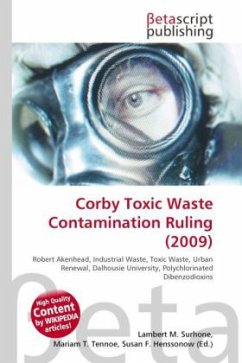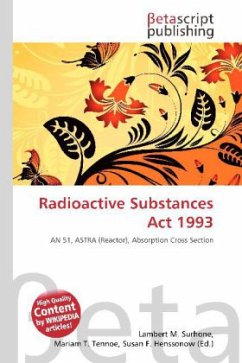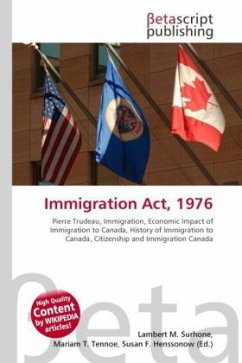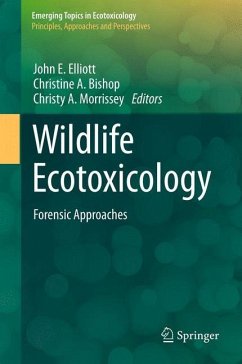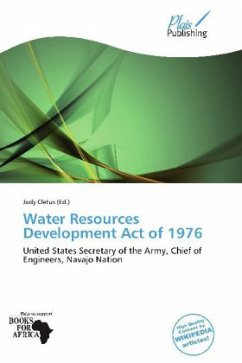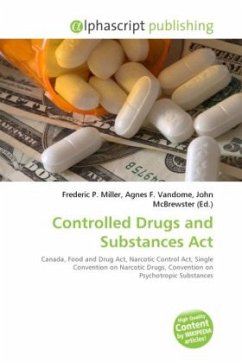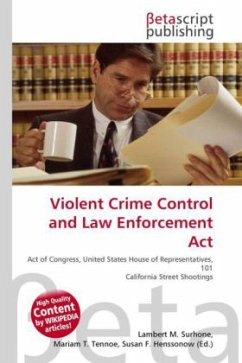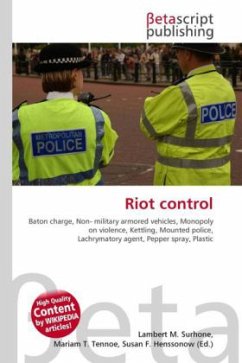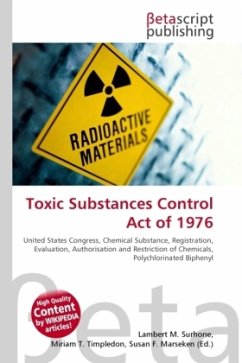
Toxic Substances Control Act of 1976
Versandkostenfrei!
Versandfertig in 6-10 Tagen
26,99 €
inkl. MwSt.

PAYBACK Punkte
13 °P sammeln!
High Quality Content by WIKIPEDIA articles! The Toxic Substances Control Act (TSCA) is a United States law, passed by the United States Congress in 1976, that regulates the introduction of new or already existing chemicals. It grandfathered most existing chemicals, in contrast to the Registration, Evaluation and Authorization of Chemicals (REACH) legislation of the European Union. However, as explained below, the TSCA specifically regulates polychlorinated biphenyl (PCB) products. Contrary to what the name implies, TSCA does not separate chemicals into categories of "toxic" and "non-toxic". Ra...
High Quality Content by WIKIPEDIA articles! The Toxic Substances Control Act (TSCA) is a United States law, passed by the United States Congress in 1976, that regulates the introduction of new or already existing chemicals. It grandfathered most existing chemicals, in contrast to the Registration, Evaluation and Authorization of Chemicals (REACH) legislation of the European Union. However, as explained below, the TSCA specifically regulates polychlorinated biphenyl (PCB) products. Contrary to what the name implies, TSCA does not separate chemicals into categories of "toxic" and "non-toxic". Rather it prohibits the manufacture or importation of chemicals that are not on the TSCA Inventory (or subject to one of many exemptions).



